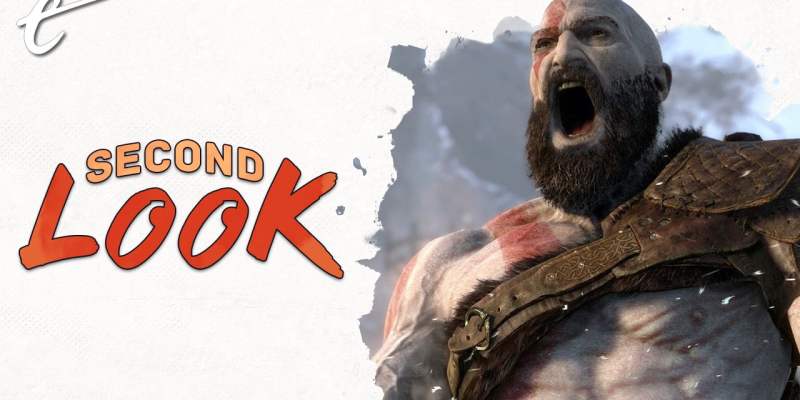I like wide-linear adventures with an emphasis on diegetic storytelling, meaty but not overly complex combat, meaningful power progression, and a customizable play style to suit my preferences. It’s why Dishonored 2 retroactively became my 2016 GOTY pick after playing it three times in a row for this year’s column. Yet a dozen or so hours into Sony Santa Monica’s God of War, I wanted to run away screaming from it like Kevin McCallister.
This was not the reaction I anticipated having to the game. I’d even been saving it as one of the last PlayStation 4 exclusives I’d play, given its writing team crafted the brilliant narrative of Lost Planet 3 and the gameplay direction looked like a hybrid of Dead Space and The Legend of Zelda. And the narrative is indeed remarkable, with an aged Kratos and his young son Atreus going on an adventure through reimagined Norse mythos full of clever twists on traditional tales. While it’s obvious where things are headed, personal mysteries on your journey are what make it worth experiencing, just like in Lost Planet 3.
However, things get more complicated when it comes to the gameplay. While I’m no devotee to the traditional God of War gameplay scheme of isometric brawls that feature dozens of enemies being slaughtered like tissue paper, it was a distinctive style. By contrast, the shift in the latest entry is polarizing — I’m honestly surprised so many fans were willing to embrace it, as typically this sort of change dooms a game to only be talked about on columns such as this.
In redesigning God of War, Sony Santa Monica opted for gameplay made to represent Kratos’ age and greater hesitance to pick fights casually. A slower, smaller-scale style of fighting makes sense as a way to represent his hard-learned humility. It also grants more room for Atreus to breathe, supporting his father in combat. It’s intimately dangerous, like a bar brawl, rather than a war of the gods. Nowhere is this more obvious than your fights with Baldur, which are easily the highlight of the experience, feeling the closest to a melding of the original and new gameplay styles.
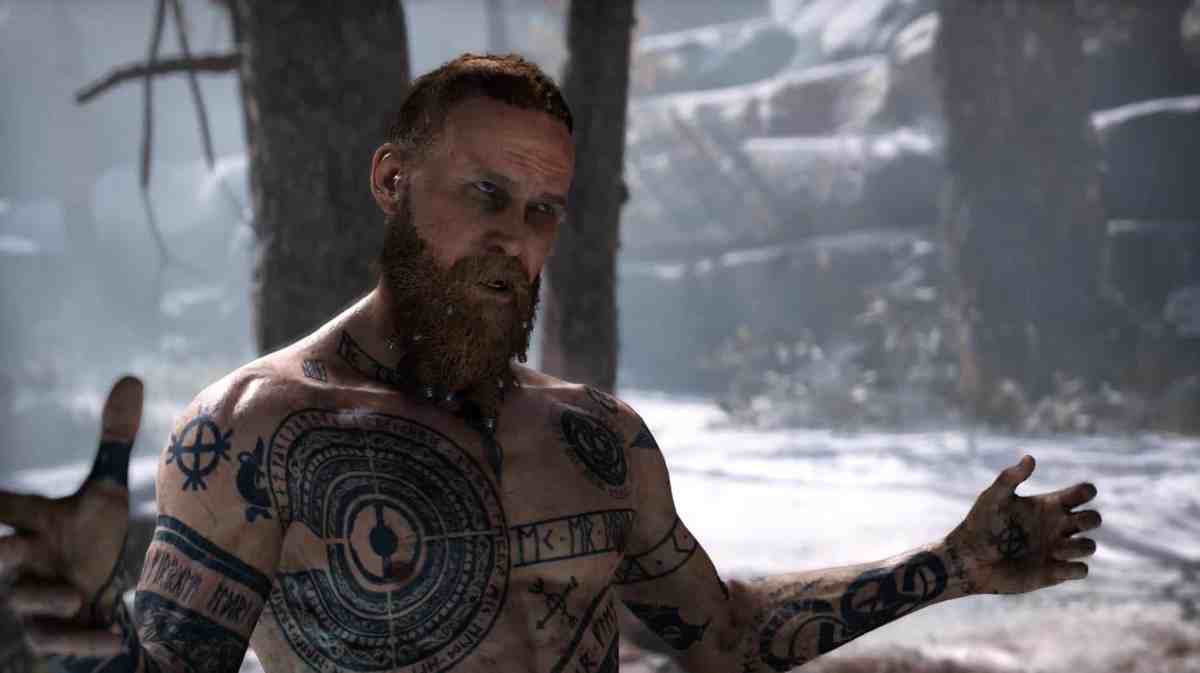
On a similar note, the abandonment of linearity and set pieces in favor of more traditional open-world questing helps emphasize that you’re on a world-spanning quest as you strive to lay Kratos’ wife Faye’s ashes on the highest mountaintop. Both Kratos and Atreus need to rebuild themselves and establish their own familial bond, which is why you have to spend so much time honing your skills together.
The problem here is that while it all makes narrative sense, the gameplay just isn’t enjoyable for me. I’ve spent several weeks trying to figure out where the disconnect is, because on paper, this is a cohesively designed game. Everything knits together, but it was absolutely miserable to play. That’s when I realized that virtually everything I typically want in a game was dragging down the experience.
God of War is a game that fills you with a sense of urgency, but then it never moves things along as fast as you’d think it would. It’s to the point it makes The Mandalorian look like a rapid-fire action movie. This is in part due to its ever-present camera that never cuts away or jumps ahead, forcing you to be there for every step, no matter how uneventful it might be. While it lends a greater sense of continuity, many areas are nothing but visually appealing dead space filling the void.
The tedium extends to the game’s controls, camera, and field of view. The narrow perspective granted to players essentially necessitates throwing your starting ax at a range whenever possible, treating the game more like a fantasy twist on Dead Space. However, throwing your ax becomes incredibly repetitive since skill-unlocks seldom cater to it.
Yet getting in close means constantly playing defensively to avoid getting caught off guard, due to your low health and more specialized moves not offering much of an advantage over traditional attacks. It parallels Star Wars Jedi: Fallen Order’s similar struggles of giving you powerful moves, then making it far too bothersome to fully harness them. Though it’s technically deeper now, you’re more likely to use the various juggle combos in the series’s older entries.
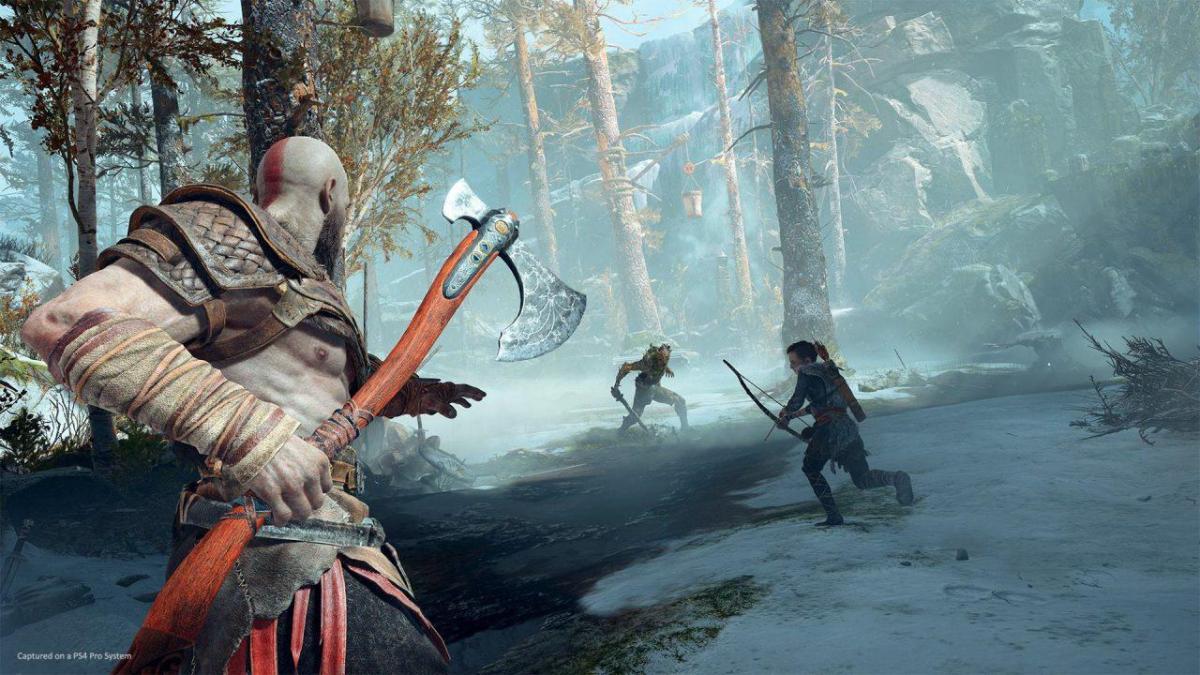
That counterintuitive design extends to the game’s progression systems in general, which effectively level-gate certain quests and fights. If the rules were at least consistent, one could just call the game grindy, but in certain cinematic moments, Kratos becomes automatically more powerful. It creates an unfortunate dissonance that could’ve been easily avoided had the game opted for a more streamlined progression like in the series’s past.
Yes, being able to socket unique powers and runes in my armor affords me more choice, but the results are often far less exciting and far more numerical. For all the flak Marvel’s Avengers receives, that game lets you invert Kate Bishop’s teleport arrow into a blackhole arrow that swallows up enemies, whereas God of War lets you change Kratos’ sweeping blast of magic to a slicing blast of magic. Plus, many additional moves are situational, which should allow you to be a Norse John Wick, but more often it means investing your experience points into something you might only use in one out of eight fights, like Spartan Rage.
Had the developers designed the game to focus primarily on Atreus’ progression and skill development instead, they actually could have avoided many of these issues. After all, molding your son into a warrior justifies starting from ground zero. Yet Kratos should not need fancier pants to fight a single undead monster when he’s punched literal gods to death. It’s okay if Kratos develops purely through upgrades and players express their Kratos through skillful combos rather than the minutiae of character builds.
The greatest testament to God of War’s struggles is the sheer stiffness of it all, and I don’t just mean in terms of camera or combat. Rather, even the simple act of completing one of the game’s hidden-object puzzles highlights how awkward it is to engage with the world. You can identify the three markers you need to strike to hit a chest, but actually hitting all three in time while piloting Kratos like he’s walking through molasses feels like deliberate, premeditated torture.
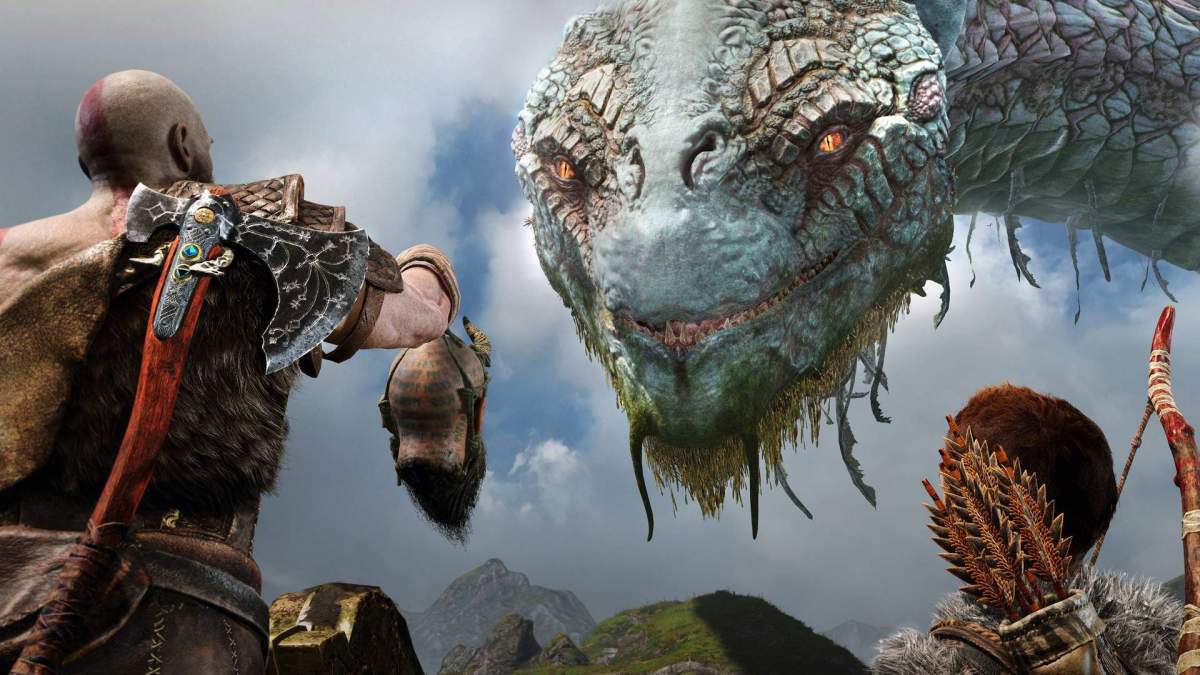
You’ll find yourself fighting to navigate and execute basic actions — yet it’s never impossible. Every challenge is extremely surmountable, displaying the same accessibility of many PS4-era Sony exclusives. One doesn’t experience the fury of Kratos from fighting a vicious opponent, but from the control delay between thought and execution. Even simple things like recalling your ax are just oddly off-kilter.
Instead of just tapping your throw button while aiming to summon your ax back, you have to tap a face button, letting go of the right analog stick. While you can rebind the key, you can’t bind both functions to the same button. I know it sounds like a nitpick, but given how often I resorted to ranged attacks due to aforementioned reasons, with each throw it became more bothersome.
Ultimately, even though I applaud many of God of War’s decisions from afar, the game left me profoundly, for lack of a better term, disconcerted. It reached a point that I consulted others who’d played the game and sung its praises. No matter where I turned, a portion of my issues irked them as well, but the issues didn’t bother them as intensely — which was when I realized what was happening. It was a surreal experience.
First of all, God of War is never lacking in cohesion. It’s a beautiful story reaching for complicated emotional depth few games have come close to. It’s clear that there’s something here that appeals to a certain mindset shared by many, albeit held back by several subtle yet pervasive blemishes, but it’s quite possible the upcoming sequel will resolve these issues.
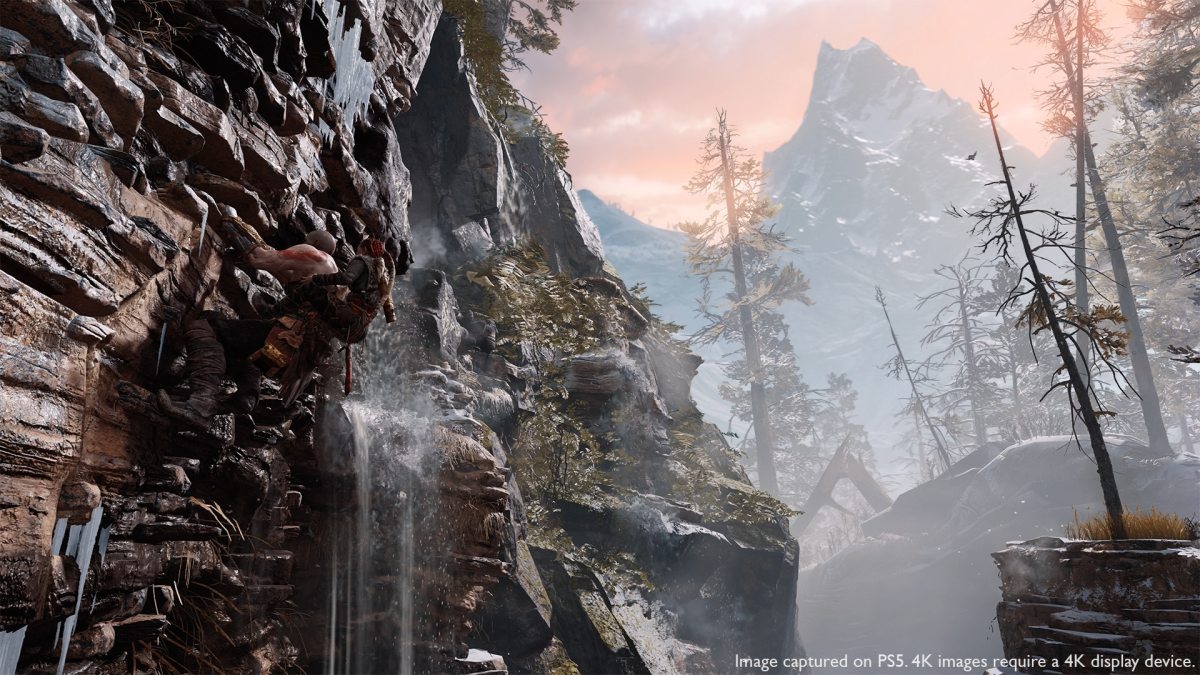
However, my realization was that God of War made the same creative choices I’d likely make, yet the result was something inherently frustrating. It’s like being offered the perfect meal, only for it to turn to sand in your mouth. What should’ve lent the game depth instead made it feel tedious and drawn out. Combat designed to emphasize strategy made me more inclined to use simpler tactics. It wasn’t simply one thing that bothered me, but the overall experience. At first the irritation was minor, but it spread like a rash, even making it hard to enjoy the narrative.
So for me, the lesson here is that one can never know truly for certain what art they most desire or need. As always, one must keep an open mind to new possibilities — even if those challenge your preconceptions of what makes for the “best” games. The person I was when I first settled on these preferences isn’t necessarily who I am today, which leaves me curious, if uncertain. I think it’s fair to say the first sign of this shift was when I found myself enjoying Metroid: Other M, despite every apprehension I’d loathe it. It’s something I’ll be reflecting on in the weeks to come.
Though I can’t stress this enough, Sony Santa Monica — please implement a better camera next time around. Kratos is larger than life, and so too should his field of vision be larger than that of an engineer on the USG Ishimura.
